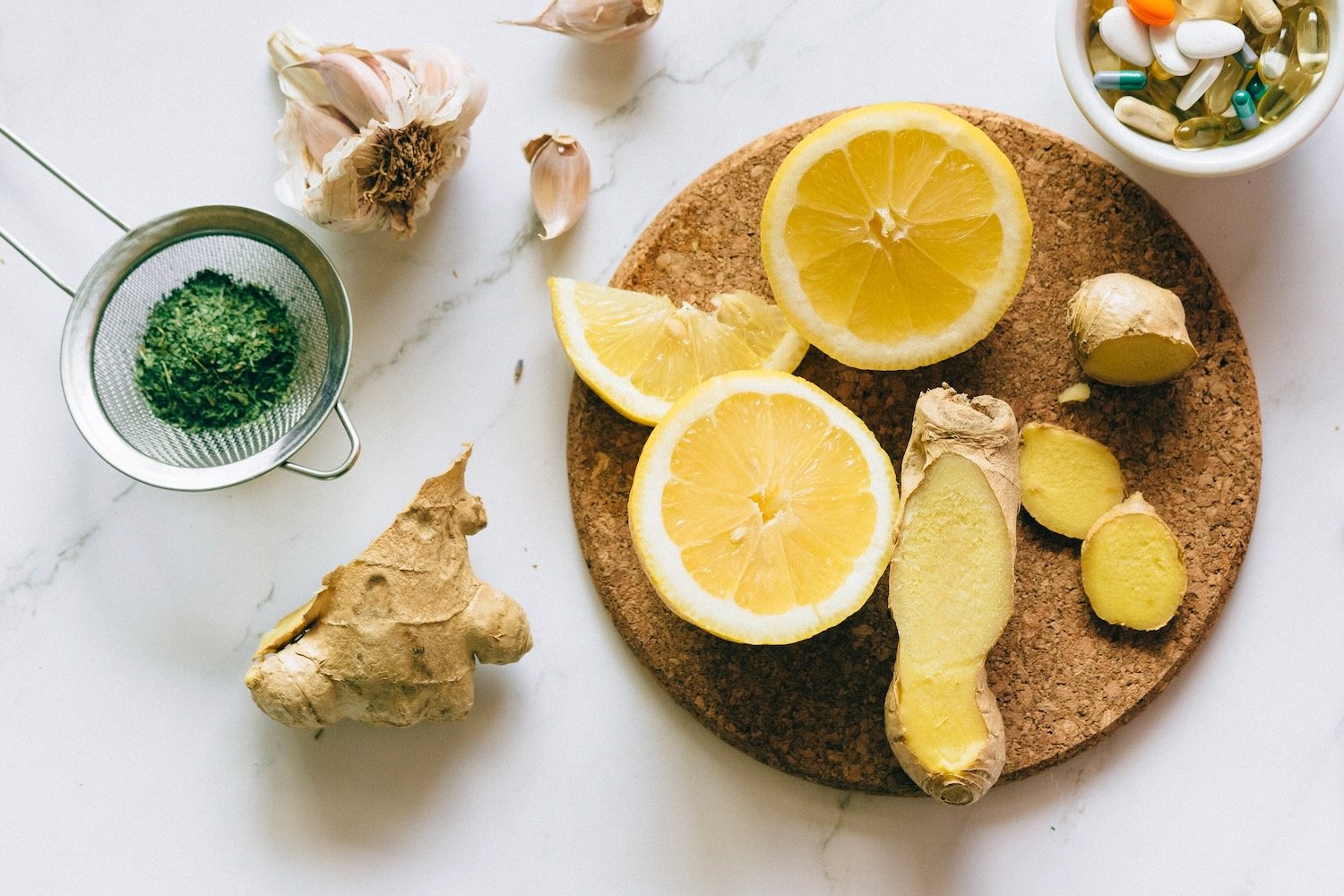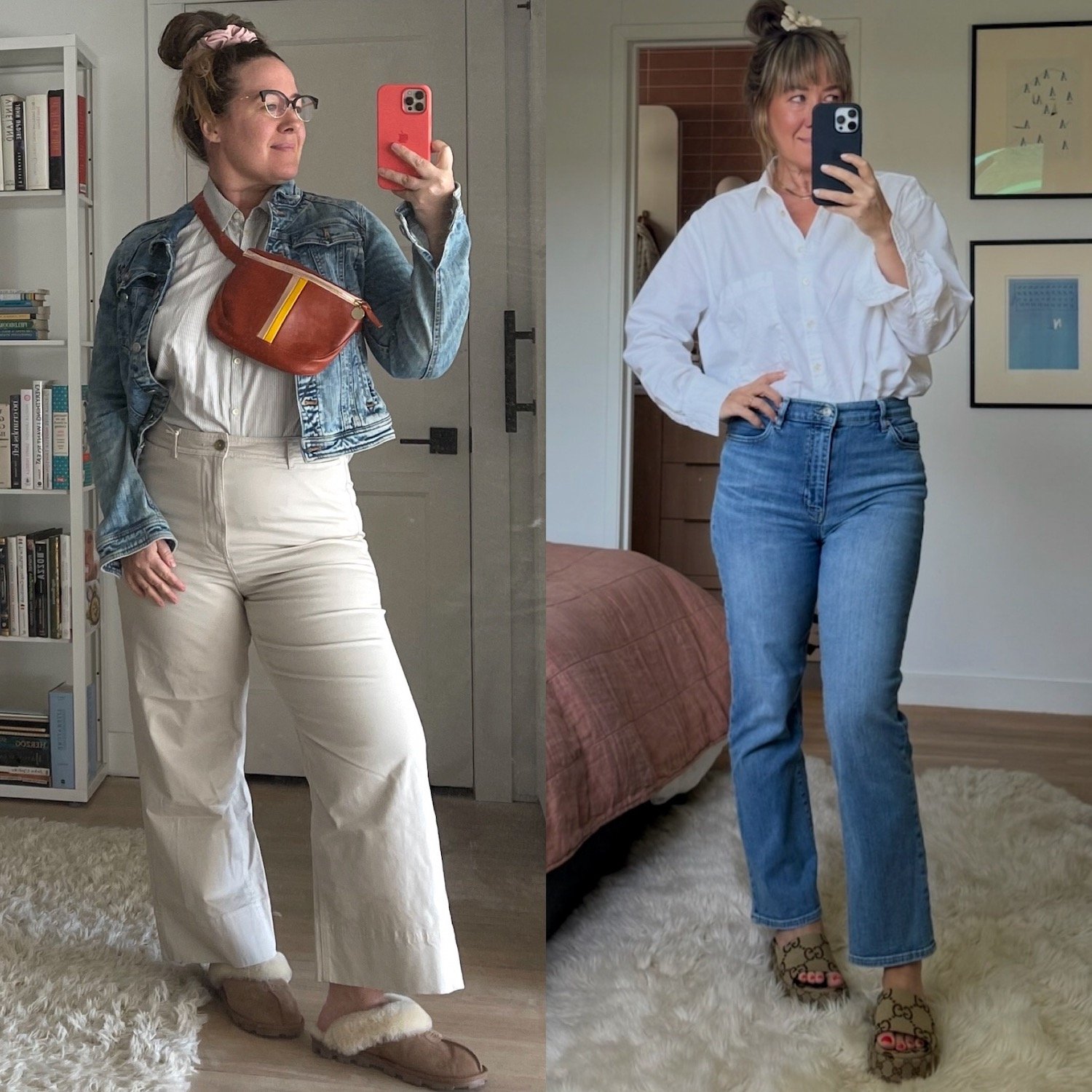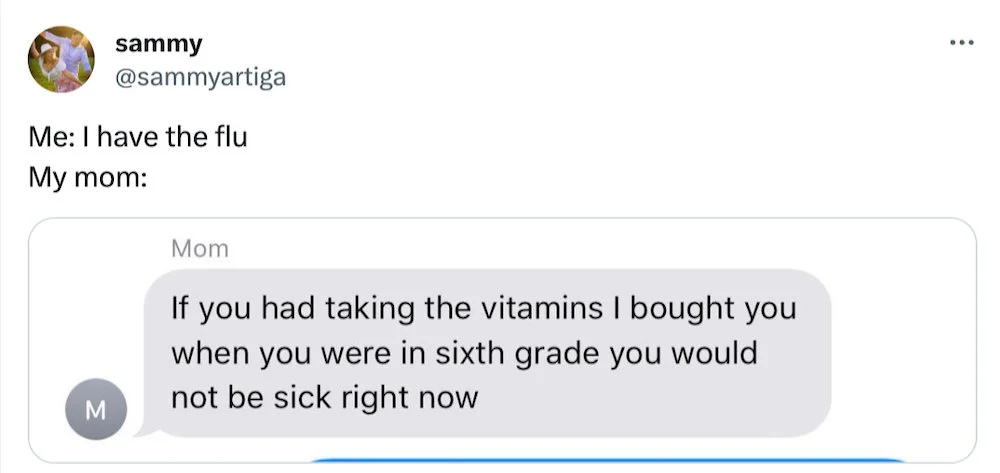5 Tricks For Never Getting Sick
Warning: Some are witchy
by The Candidly Team
We hate getting sick. You hate getting sick. We all hate getting sick.
But unless you’re working from home. Kidless. Possibly friendless, you’re probably doing it a lot more than you’d care to be.
And we know, despite this catchy title, we’re not going to be able to avoid it all the time. But what about getting sick less? Can we at least do that?
Well, we decided to compile a little, logical list of actions you can take this very instant to arm yourself against this hellish season.
And look, we’re kind of assuming here that you know the major players when it comes to what we can control about staying healthy:
Wash your hands (no, but really, wash your hands…like a lot)
Eat healthy
Exercise regularly
Sleep well
Stress less
Drink lots of water
So when we talk about these five particular things, it’s really more about shining light on specific or less expected stuff that could help you better combat the avalanche of germs being rolled your way.
And here’s what they are:
1. Treat your nose like a fragile infant
It turns out that instinct to burrow our nose in an absurdly enormous scarf as we shuffle down the icy street could be entirely correct. Our nose is the first-stop shop for many upper respiratory infections and our body’s first line of defense against them. And a recent study revealed that cold weather itself can weaken its immune response.
The technical reason is that bacteria-fighting sacs in our nasal passageways called extracellular vesicles or EVs decrease when temperatures drop. The study also showed that cold weather impairs the antiviral proteins inside EVs, all of which could help explain why we get sicker in chilly season.
So, in effect, our grandmothers who insisted we wear a hideous turtleneck to walk 3 blocks to a friend’s house might have been right all along. And it’s why we might immediately invest in one of these.
The second thing to consider is saline solutions or nasal sprays, which have been thought to help relieve or even prevent some cold and allergy symptoms but can also help foster a nice, healthy nasal environment where we’re more protected against the intrusion of bacteria.
One 2023 study pointed to oral and nasal saline irrigation as a technique to reduce the viral loads of Covid-19 in people’s noses, helping them “hasten viral clearance” and avoid the hospital. This, of course, needs to be done using the right materials and consulting your doctor. But it’s a relatively safe and easy practice that’s worth paying attention to as more info is gathered.
2. We know it’s boring, but sleep at least this much
People who don’t sleep enough or who have bad quality sleep tend to get more colds. Not shocking but somewhat tragic news for us troubled sleepers. One study showed that people who got fewer than 7 hours a night versus 8 or more were 3 times more likely to catch a cold. So rest, rest, rest. And rest.
3. Have more sex
Finally, a fun one! There’s this study that found that people who had sex multiple times a week (like 2 or more) had higher levels of immunoglobulin A, an antibody that supports immune function.
Findings from a 2021 study on the “protective role for the sex in COVID-19 infection” also showed that when “one’s sexual activity increased, the immunity status becomes more competent to deal with pathogens.” Therefore, there was “lower incidence of disease” among those who had sex more than 3 times a month in comparison to those who had sex less often.
4. Do 20-30 minutes of moderate exercise 5 days a week
We all know the protective role of exercise when it comes to staying healthy. But according to an interview with immunologist Leonard Calabrese, DO, exercising moderately on a regular basis (like 20-30 minutes, 5 days a week) “enhances your broad-based defenses against viral infections, such as those causing upper respiratory infections.” Try speedy walking, biking, hiking, or swimming, for example.
5. The (bulletpointed) spiel about supplements
Is there any area more contradictory than the one looking at the effects of supplements on a common cold? We’ve done research and let us tell you, it’s exhausting. We also know that this is one of those things where some people will swear by one remedy even when scientific data is unsupportive.
And so, we’ll give you the briefest, most digestible of run-downs we can of a few of the key players when it comes to boosting our immunity.
Vitamin C
Vitamin C has antioxidant and anti-inflammatory properties and has “positive impacts on curing of infection.” Recent studies concluded it might even “play a protective role in the current COVID-19 pandemic through boosting the immune system.”
Sadly, however, the consensus in the research world at this moment is that taking it daily won’t likely protect you from catching a cold. But it could help shorten your cold once you get one. So getting enough, be it through diet or a supplement, is certainly a good idea.
Vitamin D
Low vitamin D has been connected to higher risk of acute respiratory infections. And certain studies have shown that for some people, especially those with “significant vitamin D deficiency,” taking a daily or weekly supplement helped cut their risk of respiratory infection. Other research has suggested vitamin D could shorten or lessen the severity of a cold.
And then, of course, to fully break our brains, one 2022 UK study came along and said they found that taking vitamin D supplements was “not associated with a reduction in risk of all cause acute respiratory tract infection or covid-19.” We know, you can scream at us now.
Our advice on this one is to talk to your doctor. It certainly can’t hurt to find out if you’re low on vitamin D and your overall health and defense systems could get a boost from getting more.
Zinc
According to the Mayo Clinic, when it comes to colds “there is no guarantee that zinc will help you feel better faster,” although some studies have shown it helped with both length and severity. Zinc should be taken in safe recommended doses as side effects can be uncomfortable or even serious. And while the scientific response to it seems to be a bit “lukewarm,” odds are you know someone who swears by it, and we’re not here to deny their reality. Especially when we’d pretty much be willing to do shots of liquified seaweed if someone told us it would declog our nostrils.
Vitamin B12
There are studies suggesting B12 can help “balance immune responses to better fight viral infections.”
Probiotics
There are some promising studies showing that taking probiotics may help prevent upper respiratory tract infections, so this is one you should march right over to your doctor for consideration.
Rather than frustrate you further with flip-floppy information, we’ll present you with a bottom line. We all require a gorgeous, complex, vitamin-rich diet to boost our immunity. That includes TONS of fruits and veg and sure, some supplements decided on by you and your medical team.
Ok, obvious stated. Let’s move on.
BONUS: The witchy stuff (and it’s not even that witchy)
Make ginger a thing. Fresh ginger may have antiviral effects, and there’s evidence it could help prevent colds.
Drink, gargle, or take capsules of green tea: A 2021 meta-analysis showed that “regular green tea consumption, whether by taking GTC capsules, drinking, or gargling” can help prevent the flu.
Meditate: There’s some evidence that practicing mindfulness meditation could protect against acute respiratory infection.
As much as some of this might feel like common sense, we personally love forming a game-plan when it comes to feeling our well-est (should be a word). And if that means throwing a gingery green tea and 20-minute walk into our routine, we’re happy to oblige.
… AND A HUUUUGE P.S.
Maybe the biggest hack of all to staying healthy is to NOT put your hands in your mouth. When we touch our face, in general, we’re giving the germs we’ve gathered along the way direct access to our mucous membranes. And none of us realize how much we’re doing it.
This article is for informational purposes only. It is not intended to be used in place of professional advice, medical treatment, or professional care in any way. This article is not intended to be and should not be a substitute for professional care, advice or treatment. Please consult with your physician or healthcare provider before changing any health regimen. This article is not intended to diagnose, treat, or prevent disease of any kind. Read our Terms & Conditions and Privacy Policy.








